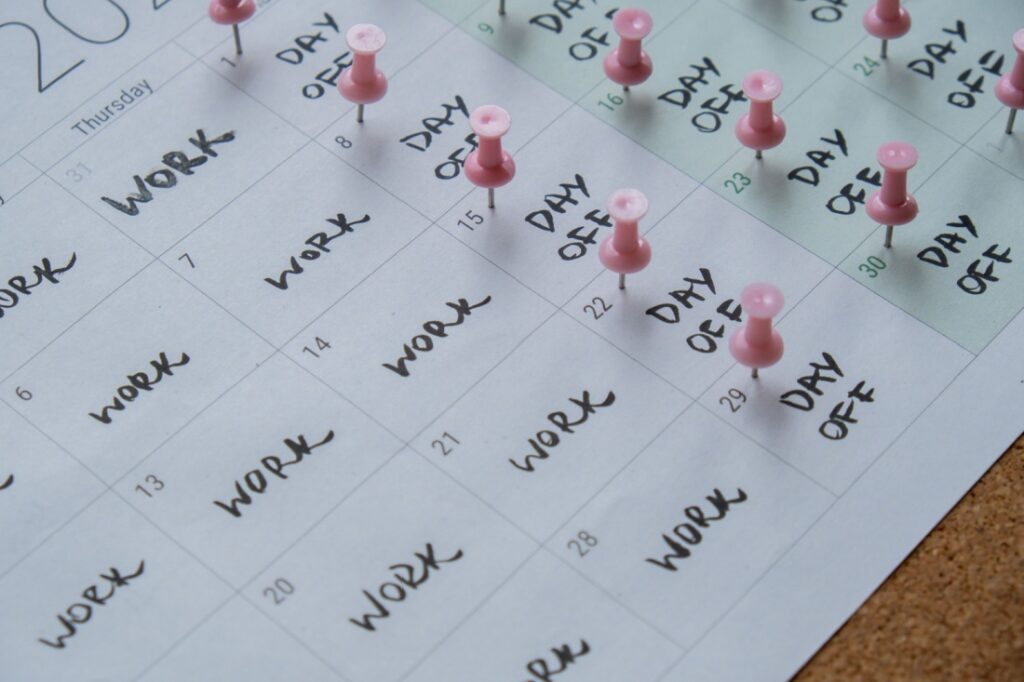When Greece introduced a six-day workweek for some business sectors last July, the backlash was immediate. Unions condemned the law, and protestors took to the streets, according to news reports.
In fact, the Greek initiative contradicts a prevailing worldwide trend. Many countries and companies—as well as employees around the globe—are, instead, eyeing a four-day workweek.
In 2022, Belgium became the first country in Europe to pass legislation giving workers the right to work the same number of hours in four days rather than five. A widely reported four-day workweek trial in the UK from June to December 2022 allowed companies to tailor the model to fit their individual needs. The trial was the largest of its kind and boasted excellent results.
Some 71% of employees reported less burnout and 39% less stress, while 15% of the 2,900 employees who participated in the trial said that “no amount of money” would convince them to return to a five-day workweek. Companies in the trial also reported an average 35% increase in revenue. Of the 61 companies that participated in the UK trial, 56 opted to continue with the four-day workweek.
“In Britain, and this is the same in the States as well, we have a culture of very long working hours,” says Joe Ryle, director of UK-based advocacy group 4 Day Week Campaign, one of the organizations behind the UK trial.
“Particularly in the UK, we work the longest full-time hours compared to our neighbors in Europe, but we also have one of the least productive economies. What we are producing is a workforce that’s burnt out, stressed, overworked, not very happy.”
“It’s time for a change,” Ryle says. “And the encouraging thing is that the four-day week has come a long way in quite a short space of time.”
A brief history of how we arrived at the 40-hour workweek
Historical records show that industrial laborers in the 1800s commonly worked 70 or more hours per week. This prompted the creation of labor unions in the late 1800s that called for more reasonable workdays. It would take many more proposals and the Great Depression before Congress passed the Fair Labor Standards Act, which officially restricted the workweek to 44 hours in 1938, amended two years later to 40.
That model is still the norm. According to the U.S. Bureau of Labor Statistics, American workers averaged 8.09 hours of work per weekday in 2023. That’s an average, meaning many workers regularly exceed those hours. In some fields, it can be seen as a sign of status and dedication to put in much more.
A four-day workweek could lead to a greater sense of well-being
Still, cracks in the structure and acceptance of traditional work schedules have been appearing for decades. In the 1950s, then-Vice President Richard Nixon promoted the four-day workweek as a means to raise the “standard of living” for Americans. In the 1980s, the feminist movement began advocating for flexible schedules and maternity leave for women, demands that eventually extended to men. Following the COVID pandemic, many workers realized they wanted more flexibility in their work lives.
A Gallup survey of 5,458 U.S. adults in May 2023 found that 77% were optimistic that a four-day workweek option would enhance their well-being more than any other proposed initiative, such as providing mental health days or limiting work outside of work hours.
“In just a few years, we now have evidence that shows that actually when people are working… four days rather than five, not only are they much happier because they have a better work-life balance,” Ryle says, “they also are much more productive in the workplace. They’re able to get on with the work that needs to get done in four days rather than five.”
How society could benefit from a four-day workweek
The website for the 4 Day Week Campaign further broadens the benefits of a shortened workweek from the individual to society at large. Societally, a four-day workweek could benefit the economy and the environment through outcomes like lower unemployment, increased productivity, boosts to tourism, greater gender equity, strengthened communities, a more sustainable lifestyle and a reduced carbon footprint.
“This isn’t a change which is going to happen overnight for everyone,” Ryle cautions. “If you look at the history of moving from a six-day week to a five-day week, it does take a while. It does tend to take around a decade or even longer for… an entire economy to shift. It’s going to take time, and there will be different ways of getting there and it will look different in different sectors.”
One company’s experience implementing a four-day workweek
Jenna Kutcher, digital marketing guru, bestselling author and podcaster, opted to try the four-day workweek for her business after reading Alex Soojung-Kim Pang’s 2020 book Shorter: Work Better, Smarter, and Less, which profiles South Korean companies that went against the grain of local culture and found great success with shorter workweeks.
She was also inspired by a friend who asked if she ever took a “sacred day,” described as “one day of the week that was reserved just for you. No guilt. Do whatever you need. Fill up your own cup before serving everyone else.”
“That was just a huge challenge to my way of thinking and working,” Kutcher notes. “I was finding that most of the time I was just shifting right from work into motherhood and vice versa.” Curious, she decided to try a 90-day trial of the four-day workweek. “The expectation for my team was no using Slack on Fridays, no hitting emails, no expecting anyone else to be online.”
Though she says she didn’t want to commit without trying it out first, she found that her team “loved it,” and productivity and profits were not compromised. Outside contractors were informed that Fridays were not a workday, and they proved flexible. “It was a non-contested decision to continue on with a four-day workweek, which we have done now for over a year because we absolutely love it.”
“My entire team is a team of women. Most of us are mothers. It was just amazing to have a little bit of time for ourselves but also to fill that day with family, life stuff and admin so that our weekends could be more enjoyable.”
She adds, “Fridays are now my sacred day—where I can fit in appointments, I can go get a massage, I can take a nap, I can spend time with my family or sit down and read a book. And I feel like it’s also challenged us in the work setting to be more efficient with the time that we have but also to not overthink things, to just be in a more active state, whereas, I think that a lot of times your projects will expand the amount of time given to them.”
“It’s something that I hope more companies put into practice, especially companies with moms,” Kutcher says. She advocates for companies to give it a trial run—like summer Fridays, for example—to see if it works for them. “I’m just a huge believer that, yes, you can do it all, but you need the system and support to be able to do that. And so, for me, the four-day workweek has totally helped.”
Her employees concur. Stephanie Montgomery, in customer support, says transitioning to a four-day workweek has given her “freedom and flexibility that I didn’t even know I needed.” She adds, “Being able to fully enjoy my life outside of my job makes me a better employee. And you can bet that I’m hustling to complete all necessary tasks by Thursday evening so that I can close my laptop for the week with a sense of accomplishment.”
Marisa Vittoria, VP of operations, says that as a result of the four-day workweek, “I’m a better mother, wife, daughter and, I’d like to say, leader.” She says her family has saved money on child care, and she is now able to spend more time with her retired parents. At work, her time management and execution efficiency have only improved, and she says, “I’ve now become a pro at batching my days to get what I need done, communicating in a more effective and direct manner to manage and execute cross-brand deliverables and still protect evenings with my family.”
“This type of workweek takes time, effort, consistency, leadership, plus team commitment and, of course, a little creativity,” Vittoria adds. “But once a flow is set, it is 100% worthwhile.”
Photo from yanishevska/Shutterstock.com










